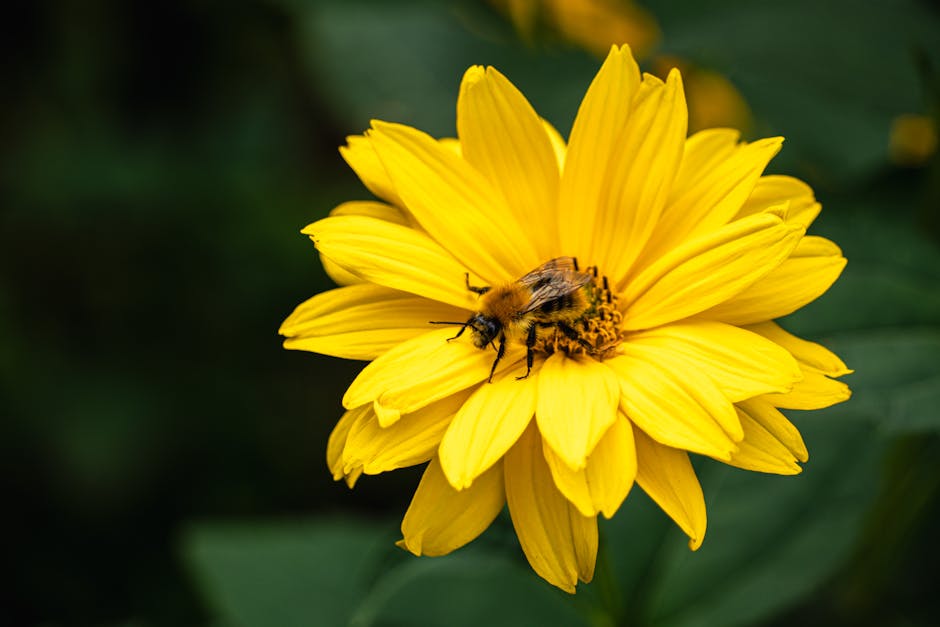Amid the bustling streets and towering skyscrapers of Tokyo, lies a hidden trove of tranquility—pocket parks. These small green spaces offer a serene escape from the urban rush, providing residents and visitors alike a moment of peace in one of the world’s most dynamic cities. Discover the charms and surprises of Tokyo’s best-kept secret gardens.
Understanding the Importance of Bees in Arizona
Protecting Arizona’s bees goes beyond preserving a single species—it’s about safeguarding our entire ecosystem. As pollinators, bees play a crucial role in the reproduction of many plants, including those critical to Arizona’s agriculture. Without them, crops such as almonds, peaches, and strawberries would face a pollination crisis. Acknowledging the importance of bees is the first step towards implementing eco-friendly pest control measures that defend these vital pollinators.
In Arizona, the synergy between bees and the environment is particularly crucial. The state’s unique flora and fauna thrive because of the pollination services that bees provide. However, with the increase in urbanization and the use of harmful pesticides, bee populations are under threat. Learning about the critical role these insects play in our ecosystem is essential for cultivating a more sustainable and bee-friendly environment.
Identifying Common Bee Pests in Arizona
In Arizona, bees face numerous threats from pests that can decimate hives and significantly reduce pollinator populations. Some of the most common adversaries include the Varroa mite, which attaches to bees and weakens them by sucking their blood, and the hive beetle, which can destroy combs, honey, and bee larvae with its larval feeding. Identifying these pests early is vital for implementing effective eco-friendly control measures that can help protect bee colonies without harming the environment.
Natural Methods for Bee Pest Control
Eco-friendly pest control involves utilizing natural methods and substances that do not harm bees or the environment. One effective strategy is introducing beneficial insects, like certain types of mites, that prey on harmful pests such as the Varroa mite. Additionally, botanical treatments, including essential oils like thyme oil or neem oil, have shown efficacy in repelling bee pests without using harsh chemicals. It is crucial to approach pest control with methods that respect the delicate balance of ecosystems.
Another approach to natural bee pest control in Arizona involves the use of physical barriers and hive management techniques. Screened bottom boards can prevent pests from entering bee hives, while regular hive inspections and maintenance can help identify and mitigate issues early. By adopting these eco-friendly and sustainable practices, beekeepers can protect their colonies and contribute to the overall health of Arizona’s bee populations.
Creating a Bee-Friendly Environment
To support pollinators, creating a bee-friendly environment is essential. Planting native flowers and maintaining water sources in your garden or community can provide bees with the nourishment and hydration they need. Additionally, reducing pesticide usage and opting for natural pest control methods can create safer habitats for bees. By building environments that cater to the needs of these pollinators, communities can play a significant role in sustaining bee populations.
Educating the community about the importance of bees and how to protect them is another crucial step toward creating bee-friendly environments. Workshops, school programs, and community events can spread awareness and encourage collective action. By fostering a culture that values and protects bees, Arizona can ensure these vital pollinators continue to thrive in urban and rural landscapes alike.
Maintaining Balance: Integrating Bees into Your Garden Ecosystem
Integrating bees into your garden ecosystem goes beyond merely planting flowers. It involves understanding the symbiotic relationships between plants, pollinators, and other wildlife to create a balanced ecosystem. Companion planting can attract bees while deterring pests, reducing the need for chemical pesticides. Moreover, using organic mulch and compost can improve soil health, supporting both plant life and the bees that rely on them.
Recognizing bees as integral components of our ecosystems prompts us to reconsider how we approach gardening and pest control. By creating diverse habitats that mimic natural ecosystems, we can support a wide range of pollinators while sustaining the beauty and productivity of our gardens. This approach not only benefits bees but also enhances the health of our entire ecosystem, demonstrating how our efforts to protect bees contribute to a larger environmental equilibrium.
The Lasting Impact of Tokyo’s Pocket Parks
In the heart of a city known for its relentless pace and towering structures, Tokyo’s pocket parks stand as bastions of peace and natural beauty. These spaces not only offer a respite for the soul but also demonstrate the significance of integrating nature into urban planning. As we wander through these parks, we are reminded of the beauty that can be found in small places and the importance of preserving these green spaces amidst urban sprawl. Tokyo’s pocket parks serve as a testament to the city’s commitment to maintaining balance between the man-made and the natural, inviting us all to pause and cherish the serenity they offer.



